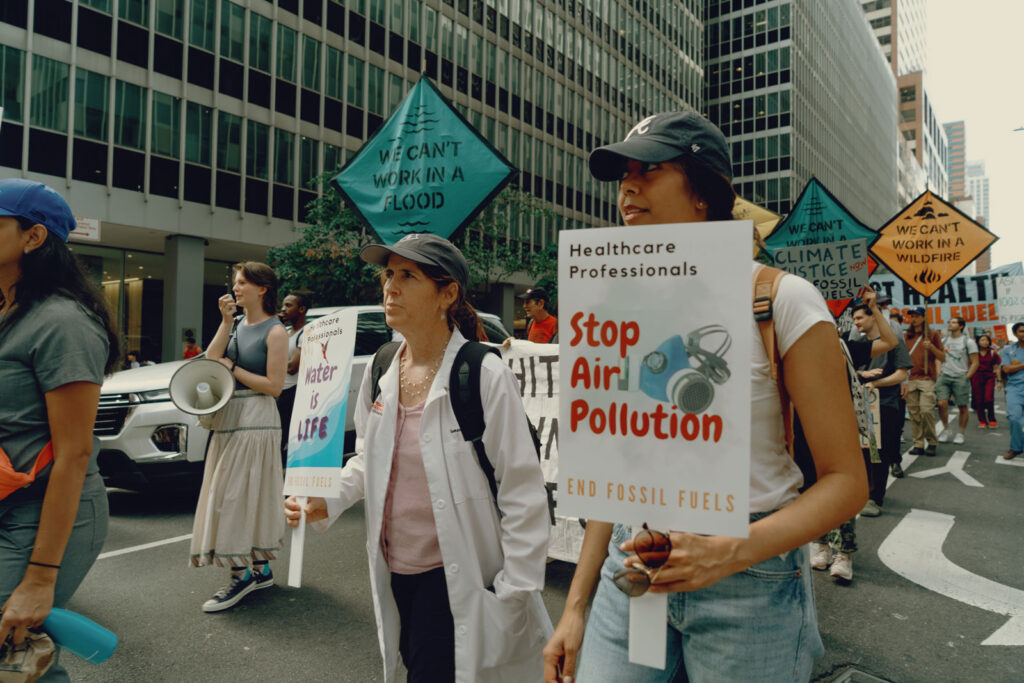Gail Bradbrook, a co-founder of Extinction Rebellion, went on trial in west London on Monday for breaking a window at the Department of Transport in October, 2019.
Bradbrook has previously pleaded not guilty to a charge of criminal damage for using a hammer and woodworking tool to crack the building’s glass frontage, which the prosecution valued at £27,500.
Bradbrook could face a prison sentence if convicted. Judges can also impose community service and fines.
Extinction Rebellion emerged in 2018, aiming to use civil disobedience to force governments to take rapid action to prevent climate breakdown and ecosystem collapse.
The group has since mobilised protests in the UK and around the world, including in April this year, when it linked up with other environmental and social justice organisations to mobilise tens of thousands of people in central London.
The trial at Isleworth Crown Court is due to conclude on Friday.
Subscribe to our newsletter
Stay up to date with DeSmog news and alerts







